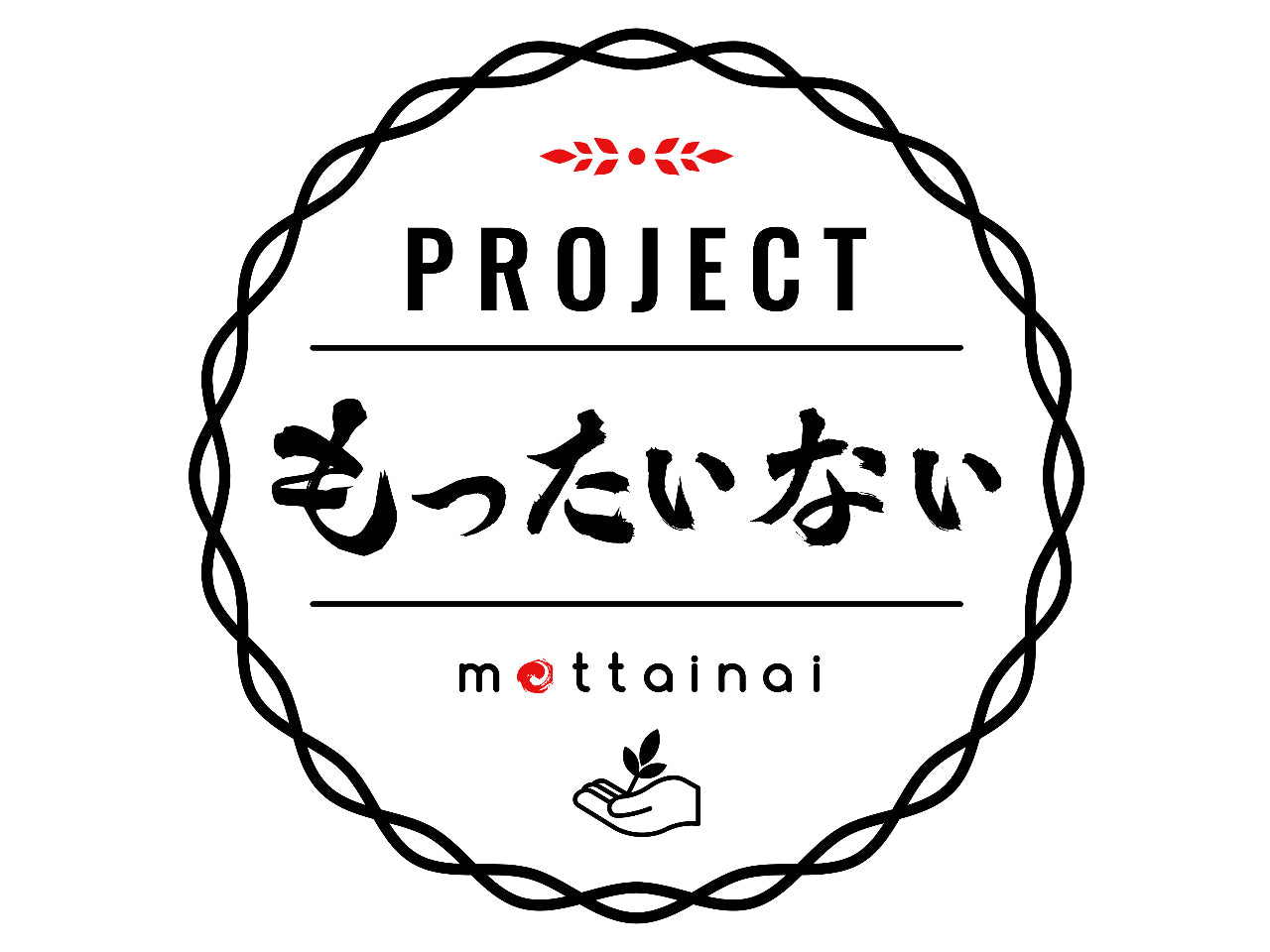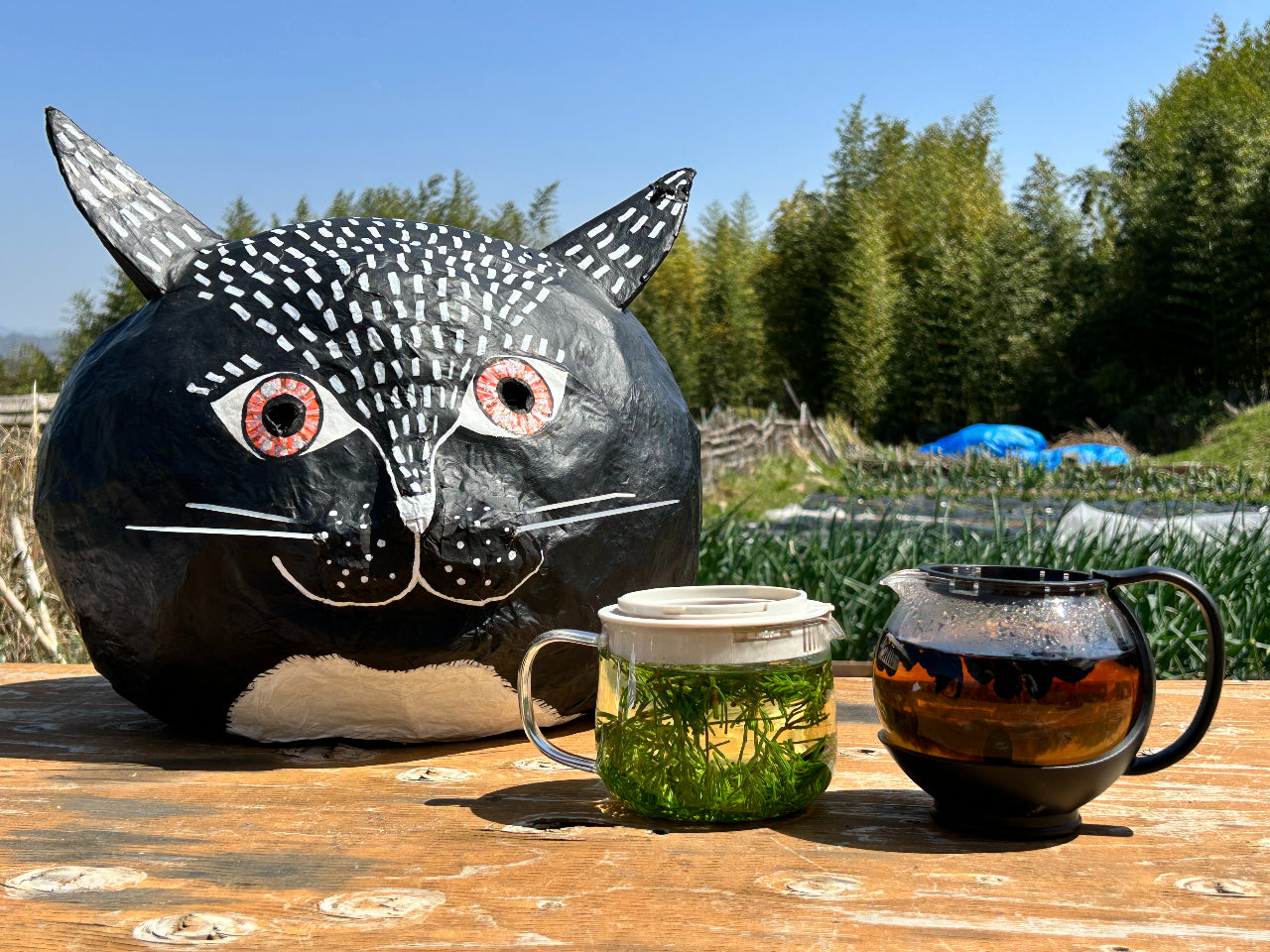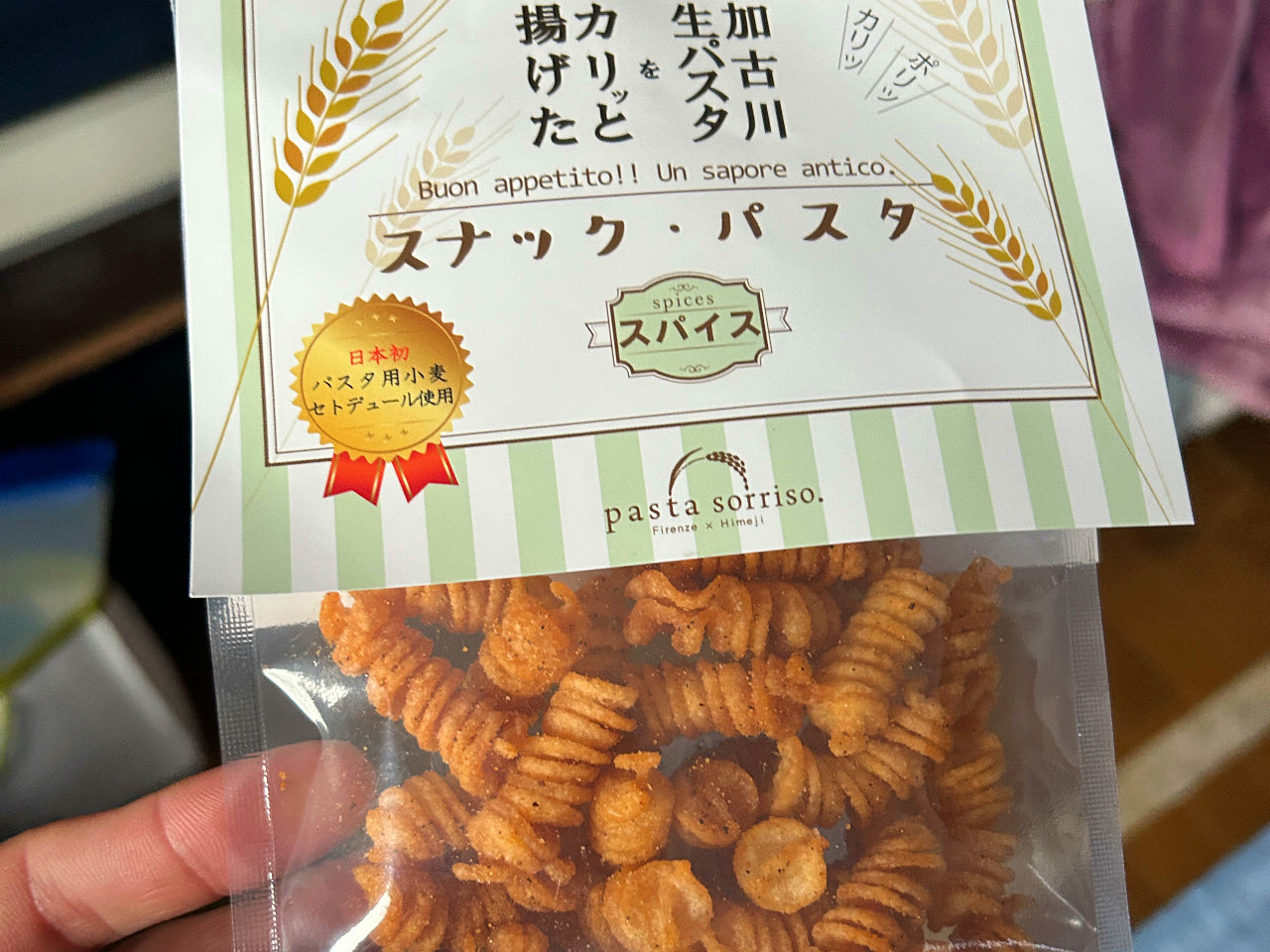"Hey, are you still planning on wearing these black pants?" asked the mother. "You don't need them anymore, do you?"
"No, just throw them away," replied the son.
"What a shame to waste them!" exclaimed the mother. "If we cut them up into small pieces, they could be used as cleaning cloths."
"Hey, why do you always leave the used coffee grounds out after making coffee?" asked the husband. "It's making the room messy. Why don't you throw them away?"
"What a waste!" replied the wife. "Leaving them in the room like this can actually help eliminate odors. Didn't you know that? How have you managed to live this long without knowing that?"
The husband kept his mouth quiet in embarrassment.
“もったいない (Mottainai)”
The term is a commonly used phrase in Japanese daily life. Although its literal translation is, "What a waste!" its true meaning goes beyond these simple words.
Frequent travelers to Japan may perceive the country as rich in natural resources, with delicious food available everywhere. While it's true that various vegetables and fruits can be harvested from the mountains and that seasonal fish can be caught from the sea, Japan is also highly susceptible to earthquakes due to its location at an intersection of four tectonic plates. Every year, tropical cyclones formed in the Philippine Sea inevitably pass over Japan, posing a significant threat to its agriculture. Landslides triggered by natural disasters can cause extensive damage to crops on the ground, and rough seas during typhoons make fishing impossible even for the bravest souls.
Japanese people who have experienced the terror of natural disasters know that access to food is not always guaranteed. They have learned that everything comes from nature, and nature can just as easily take it away. As a result, the concept of "mottainai" has emerged from this deep respect for nature and the resources it provides. This ethos of valuing resources and avoiding wastefulness has profoundly influenced the behavior of Japanese people.
During my childhood, I frequently heard warnings from my mother and teachers that doing something wasteful would result in punishment.
"If you do something wasteful, you'll be punished."
"If you don't finish your meal, a ‘ghost of waste’ will appear at night."
These teachings were rooted in the belief that deities were always watching and could penalize us for our bad behavior.
In Japan, the phrase "itadakimasu" is an essential part of pre-meal etiquette. It carries the original meaning of "lifting up food as an offering." By saying "itadakimasu," one expresses gratitude and intention to return what they have received from the deities. The concept of treasuring what has been bestowed upon us by deities and avoiding waste can be found in many religions and is a source of awe and reverence.
At Shotengai, we strive to incorporate Japanese philosophy into our product selection. We attach logos like the ones below to highlight sustainable products. But why do we do this? To answer that question, let's take a closer look at some data.

You may be familiar with the term Self-Sufficiency Ratio (SSR), which refers to the percentage of food consumed that a country produces. According to the Ministry of Agriculture, Forestry and Fisheries (MAFF), Japan's SSR (calorie-based) was 38% in 2021. This is significantly lower than other advanced countries, such as the United States with an SSR of 121% and Canada with a rate of 233%. When broken down by specific food categories, Japanese people have traditionally had high an SSR for rice (97%), vegetables (79%), and seafood (52%). However, for wheat, soybeans, and oils, which rely heavily on imports, Japan has a low SSR of 16%, 6%, and 13%, respectively.

It is often thought that a low SSR would lead people to cherish food more. However, the reality can be quite different.
According to the MAFF, over 1.3 billion tons of food are wasted globally each year. Regrettably, Japan contributes greatly to this figure, with 6 million tons of food being discarded annually. Shockingly, almost 27% of all food in Japan is wasted, equating to approximately one out of every four pieces of bread being thrown away. As a result, Japan ranks as the world's third highest country for food waste and sixth globally in terms of per capita food waste.
Why do we waste so much food? Beyond leftovers, ready-to-eat meals sold at supermarkets and convenience stores are often discarded immediately once their expiration dates have passed. Furthermore, Japanese consumers tend to have high standards for food aesthetics, preferring visually flawless items such as apples without any blemishes or bruises. During a recent visit to a food factory, I witnessed workers manually removing blemishes from lemon peels despite them being perfectly edible.
Despite having a low SSR, Japan still wastes a significant amount of food. It’s such a pity! At Shotengai, we are committed to promoting eco-friendly Japanese food around the world. While eliminating waste entirely may not be achievable, we will make every effort to minimize it.
Our Nishiki Box features several teas that make use of often-overlooked ingredients. For instance, our black soybean tea uses cracked beans, which would have been discarded despite having no issues in its quality. These beans simply crack naturally during the roasting process, but we take advantage of their unique flavor and health benefits. Similarly, our horsetail tea is made from wild horsetail, a plant that was once considered a nuisance and commonly weeded and burned. However, we recognize its value as a detoxifying ingredient and have incorporated it into our selection of teas.

The pasta snack that we feature in our Nishiki Box is made from leftover dough scraps that are generated during the pasta's manufacturing process. By using these scraps as the main ingredient, the company is able to minimize waste and uphold the "mottainai" concept of avoiding wastefulness. Moving forward, we'll continue to prioritize sustainable products like this one in our boxes.

Following the example of ancient Japanese culture, we should strive to appreciate and cherish the food that is provided to us and make healthy choices every day.
Subscribe & Support Japanese family businesses
*Reference:農林水産省『日本の食料自給率』

